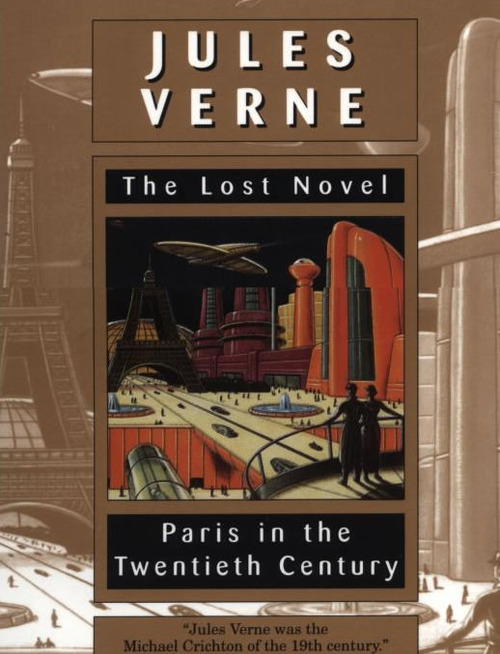Kaku responds that,
Normally such feats would be considered impossible by today's physicists. Might they become possible within a few centuries? Or in ten thousand years, when our technology is more advanced? Or in a million years? To put it another way, if we were to somehow encounter a civilization a million years more advance than ours, would their everyday technology appear to be "magic" to us?...Just because something is "impossible" today, will it remain impossible centuries or millions of years into the future?He first mentions Jules Verne's novel Paris in the Twentieth Century, which was written in 1863. In it, he predicts a world clearly considered to be impossible at his time: a world with "fax machines, a world-wide communications network, glass skyscrapers, gas-powered automobiles, and high-speed elevated trains." The same scene, Kaku claims, is happening right now as well, and that we must recognize an analyze it to the best of our abilities.
He also includes historical examples which were considered at some point in time to be impossible, mentioning ideas such as quantum theory and "alchemy" (the idea of changing one element to another) and inventions such as airplanes, X-rays and atomic bombs. Even black holes were once "proved" to not exist by Einstein.
(Notice how even the picture similarly parallels our current world.)
Kaku explains that such failures to predict the "impossible" result from "huge gaps in the understanding of science at the time." He subscribes to T.H. White's quote from his The Once and Future King: "Anything that is not forbidden, is mandatory!" By so, he means that unless a specific scientific law forbids a new phenomenon, it is eventually found.
Similar to Feyerabend's arguments, regarding those banned by fundamental laws Kaku still maintains that,
If they do turn out to be possible, they would represent a fundamental shift in our understanding of physics.Thus he suggests that they may not be as impregnable as the scientific community believes, and that the impossible may still happen.
With that in mind, we dive into some of the "impossibilities" of today...starting from the next post.

No comments:
Post a Comment